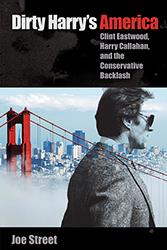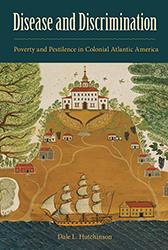This volume provides a hemispheric view of the practice of digital humanities in the Spanish- and Portuguese-speaking Americas. These essays examine how participation and research in new media have helped configure new identities and collectivities in the region.
Buy Books: browse by title
A - B - C - D - E - F - G - H - I - J - K - L - M - N - O - P - Q - R - S - T - U - V - W - X - Y - ZPlease note that while you may order forthcoming books at any time, they will not be available for shipment until shortly before publication date
This book analyzes how digital-native audiovisual satire has become increasingly influential in national public debates within Latin America. Paul Alonso examines the role of online video creators in critiquing politics and society and amplifying public discourse, filling gaps left by traditional media and journalism.
In Dirty Harry's America, Joe Street argues that the movies shed critical light on the culture and politics of the post-1960s era and locates San Francisco as the symbolic cultural battleground of the time.
Among the modernist architects who transformed postwar Florida into a laboratory of regionalist architecture, Alfred Browning Parker was an Iconoclast. He shared the conviction, common among young architects in Miami, that an authentic regional architecture had not yet been "invented." Inspired by the power of place and eager to innovate, Parker became a disciple of American traditions and the region's foremost organic architect.
Including transcriptions of the original Spanish documents as well as English translations, this volume presents--in their own words--the experiences and reactions of Spaniards who came to Florida with Juan Ponce de León, Pánfilo de Narváez, Hernando de Soto, and Pedro Menéndez de Avilés.
Dale Hutchinson argues that most colonists, slaves, servants, and nearby Native Americans suffered significant health risks due to their lower economic and social status. With examples ranging from indentured servitude in the Chesapeake to the housing and sewage systems of New York to the effects of conflict between European powers, Hutchinson posits that poverty and living conditions, more so than microbes, were often at the root of epidemics.
The Disease Detectives takes you inside the EPI, a center of high-tech labs and high-speed computers where more than 200 investigators, including geographers, pediatricians, epidemiologists, and even ecologists, join forces to study and combat pathogens that cause diseases.
Through archaeological and archival research from sites associated with the 1893 World’s Columbian Exposition in Chicago, this book explores the changing world of urban America at the turn of the twentieth century.
Placing women writers at the center of the sensory and technological experimentation that characterized the modernist movement, this book shows how women of the era challenged gendered narratives that limited their power and agency and waged dissent through their radical sensuous writing.
Focusing on the didactic nature of the work of Reinaldo Arenas, this book demonstrates the Cuban writer’s influence as public pedagogue, mentor, and social activist whose teaching on resistance to normative ideologies resonates in societies past, present, and future.











